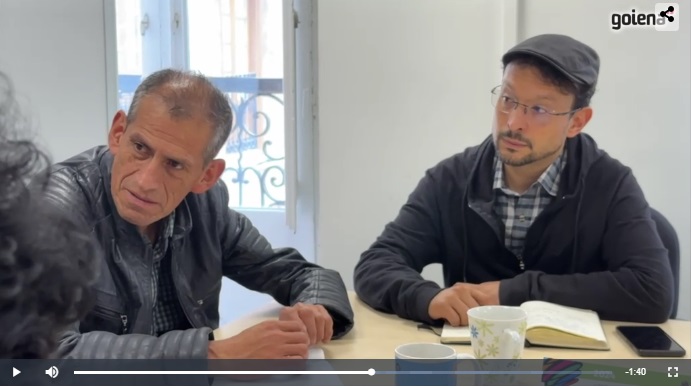Representatives of the NGO Wiego, with a presence in 52 countries around the world, and one of Mundukide’s workers in Colombia have recently been in Debagoiena to learn about the cooperative experience and Mundukide itself.
In Latin America, the Street Recyclers collective is made up of people who collect, classify, clean or transform garbage and sell it to the industry. These are people who have lived in a situation of exclusion: people who have had the streets as their place of residence or who have fled the conflict and, for the most part, women.
But the Colombian case has particularities. In fact, as a consequence of the prohibition of activities in landfills by the local government, the people dedicated to it took the path of requesting the protection of their activity and, in 2016, through an order issued by the Constitutional Court of Colombia, its development and protection as a trade was achieved, as well as the recognition of the figure of recycling streets.
In Central America this has not been achieved; they continue to work in landfills under unsustainable conditions, and control of several of them is, furthermore, in the hands of the mafias.
Mundukide and Wiego
At the beginning of the process, it joined the Mundukide project to support the National Association (ANR) and, above all, the Association of Recyclers of the South Western Colombia – ARSOC – with the aim of providing support in training, developing self-management mechanisms, strengthening the organization and incorporate cultural changes that allow them to grow as people.
It has been six years since Mundukide began his work to promote the project, and Wiego has been sixteen. The NGO is looking at other economic models and doing an exercise to understand why the social or solidarity economy serves as a bridge from non-formal to formal work. Another way to organize work to make it happen.
Original publication of Goiena

